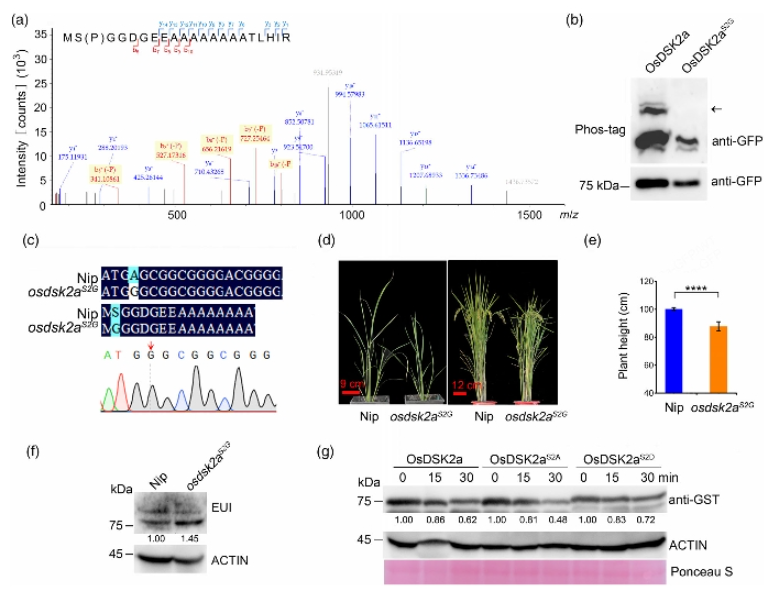|
Abstract:
Plants grow rapidly for maximal production under optimal conditions; however, they adopt a slower growth strategy to maintain survival when facing environmental stresses. As salt stress restricts crop architecture and grain yield, identifying genetic variations associated with growth and yield responses to salinity is critical for breeding optimal crop varieties. OsDSK2a is a pivotal modulator of plant growth and salt tolerance via the modulation of gibberellic acid (GA) metabolism; however, its regulation remains unclear. Here, we showed that OsDSK2a can be phosphorylated at the second amino acid (S2) to maintain its stability. The gene-edited mutant osdsk2aS2G showed decreased plant height and enhanced salt tolerance. SnRK1A modulated OsDSK2a-S2 phosphorylation and played a substantial role in GA metabolism. Genetic analysis indicated that SnRK1A functions upstream of OsDSK2a and affects plant growth and salt tolerance. Moreover, SnRK1A activity was suppressed under salt stress, resulting in decreased phosphorylation and abundance of OsDSK2a. Thus, SnRK1A preserves the stability of OsDSK2a to maintain plant growth under normal conditions, and reduces the abundance of OsDSK2a to limit growth under salt stress. Haplotype analysis using 3 K-RG data identified a natural variation in OsDSK2a-S2. The allele of OsDSK2a-G downregulates plant height and improves salt-inhibited grain yield. Thus, our findings revealed a new mechanism for OsDSK2a stability and provided a valuable target for crop breeding to overcome yield limitations under salinity stress.
Key Words:
phosphorylation;;natural variation;;plant growth;;salt tolerance;;gibberellic acid metabolism

|